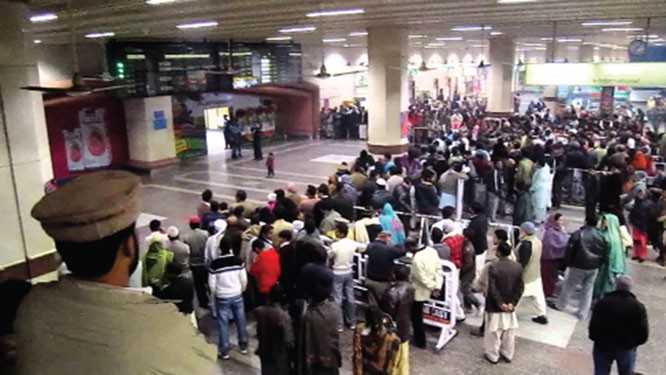
Will the "revolutionary visa policy" announced by the government recently open up Pakistan to the world?

In a long-awaited move, Pakistan has announced to soften its restrictive visa regime and has opened up the country to the world -- or at least proverbially. Under the new arrangement, travellers from 50 countries will be granted Pakistani visa on arrival and those from other 175 countries may apply for e-visas. The list of countries whose travellers will be granted visa on arrival has been finalised whereas list of countries offered e-visa will be announced soon.
Though the main thrust of the government is to promote tourism, it is likely to facilitate foreign businessmen, investors, students, Hindu and Sikh pilgrims and foreign journalists.
The decisions to do away with the No Objection Certificate (NOC) required by foreign visitors to travel to Gilgit-Baltistan and lifting ban on their movement in Azad Jammu & Kashmir (AJK) is a welcome move.
While announcing this "revolutionary visa policy" on Jan 25, 2019, Information Minister Fawad Chaudhry said the country has too much to offer to foreign tourists but this potential has not been tapped to date, whereas a country like Malaysia earns around $20 billion per annum through tourism ─ "and they only have beaches".
Many questions are being asked about the impact of Pakistan’s revised visa policy. Was the restrictive visa regime a major impediment to growth of the country’s tourism and trade? Was it the cumbersome visa procedure that turned foreigners away from Pakistan? They ask what changes will the new visa policy bring about?
Pakistan Industrial & Traders Association Front (PIAF) Chairman Mian Nauman Kabir has no doubts that the old and complex visa application procedure discouraged foreign businessmen from visiting Pakistan. "This is also a reason why Pakistan is low on the global Ease of Doing Business list."
Kabir has had to go to Dubai on several occasions to meet foreign business associates because "sometimes we have to make spur-of-the-moment decisions and can’t wait for too long for the visa to be issued."
The business visa application procedure for Pakistan has never been easy to complete. Letters are required from business organisations both in the applicant’s country and Pakistan, along with undertakings, personal and business details and guarantees. An applicant is required to appear personally at the Pakistani missions abroad. Further, foreigners can apply for Pakistani visa only in their country of origin or of permanent residence.
Kabir hopes the announcement that business visa will be issued within 7 to 10 days on the clearance of Board of Investment (BoI) translates into action.
There is criticism on the list of 50 countries that have been offered visa on arrival as it contains names of less known countries, like Saint Kitts & Nevis, Tonga, Western Samoa and Saint Lucia, while countries like China, the US and the UK have been left out.
Generally, visa policies work on the principle of reciprocity. The visa issuing country will adopt the same policy as the applicant’s country; the time taken to issue the visa and the number of documents required would be the same as required by the applicant’s country. The visa fee is also decided on the same principal.
Aftab Rana, a consultant to the KP government on tourism, terms the option to apply for e-visa the biggest breakthrough. This, option, he says, will allow foreigners any time and from anywhere to apply for Pakistani visa without going through the hassle of going to a Pakistani diplomatic mission. He says now a foreign tourist in Pakistan’s vicinity will be able to apply for Pakistani visa online and get it via email.
"Exceptions however are made for special friends who have done favours to Pakistan," says the former ambassador. "The presence of Saudi Arabia, UAE and Qatar in the list of 50 countries is an example. They have been offered visa on arrival but they have not yet extended this offer to Pakistanis."
Visitors from these Middle Eastern countries will be granted 30-day visa with multiple entries. "But China, the US and the UK are not included because they are not lenient with Pakistani visa applicants," he adds.
The government has also announced the removal of restriction on foreign journalists to stay within the limits to three cities. Once granted visa, a foreign journalist will be allowed to travel to different parts of the country without NOC but will be barred from entry into sensitive places.
While these steps are quite timely and apt, the perception factor is highly important and travel advisories about Pakistan by foreign countries can make the required difference. A good news is that Portugal has declared Pakistan safe for travel and France is likely to soften its stance as well. Foreign minister Shah Mehmood Qureshi has also requested the international community to revise their advisories, claiming that the security situation of the country has improved over the years.